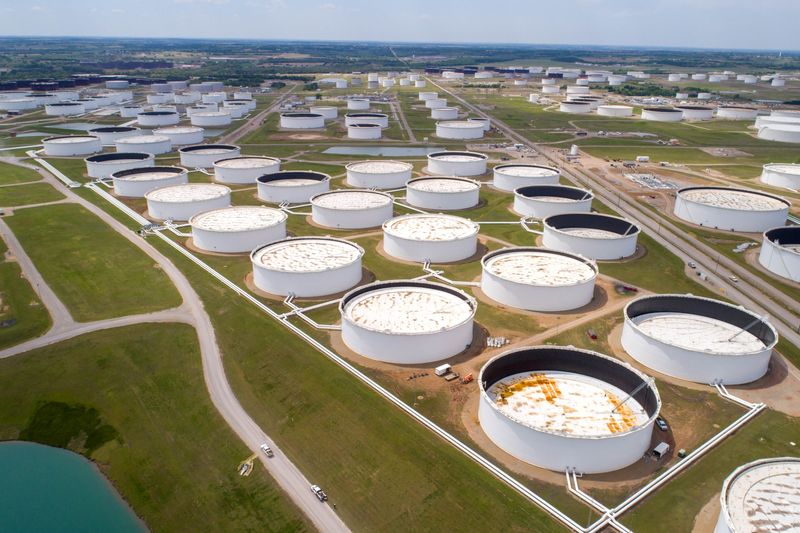HOUSTON (Reuters) -Oil prices fell more than 4% on Tuesday to a near two-week low on weaker demand prospects and after a media report said Israel would not attack Iranian nuclear and oil sites, raising fears of a disruption of supply decreases.
futures fell $3.21, or 4.14%, to $74.25 a barrel. West Texas Intermediate futures ended down $3.25, or 4.4%, to $70.58 a barrel.
Both benchmarks were earlier down $4, hitting their lowest levels since early October after falling about 2% lower on Monday.
“We are seeing a decline in the war premium we built last week,” said Phil Flynn, senior analyst at Price Futures Group. “What we see is not so much about supply, but about the risk to supply and demand.”
Brent and WTI are down about $5 so far this week, nearly wiping out cumulative gains made after investors worried that Israel could attack Iranian oil facilities in retaliation for the Oct. 1 rocket attack in Tehran.
Israeli Prime Minister Benjamin Netanyahu told the United States that Israel is prepared to attack Iranian military targets and not nuclear or oil targets, the Washington Post reported late Monday.
Both the Organization of the Petroleum Exporting Countries and the International Energy Agency this week cut their forecasts for global oil demand growth in 2024, with China accounting for the bulk of the downgrades.
OPEC has forecast much stronger global demand growth this year than the IEA. But the “range of lower adjustments is a kind of wishful thinking,” said John Evans of oil broker PVM.
OPEC and its allies, known as OPEC+, could change production plans before the end of this year, said Andrew Lipow, president of Lipow Oil Associates.

“I think OPEC+ will postpone production increases later this year,” Lipow said.
Current crude oil prices are below the level many of these countries need to meet their national budgets, Lipow added.


